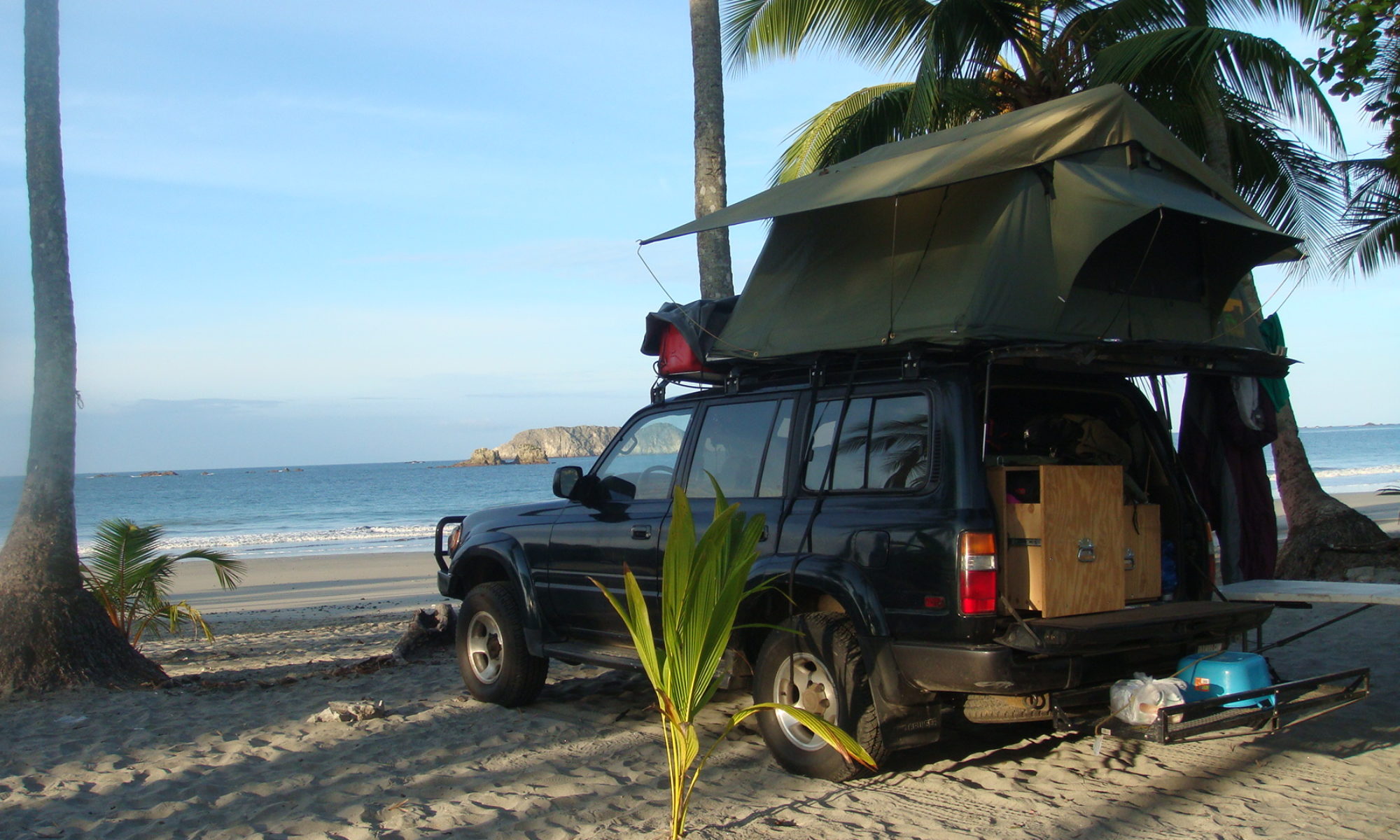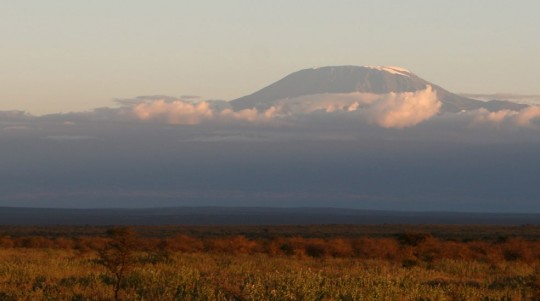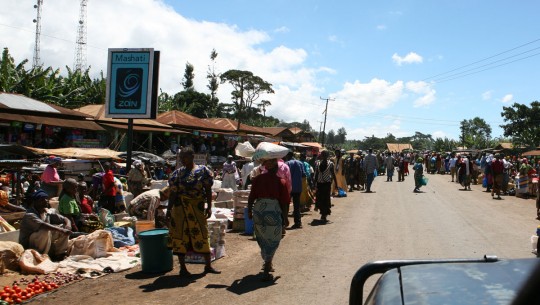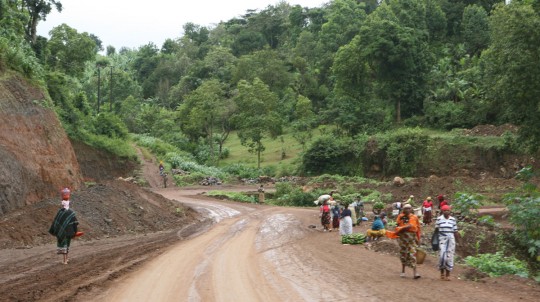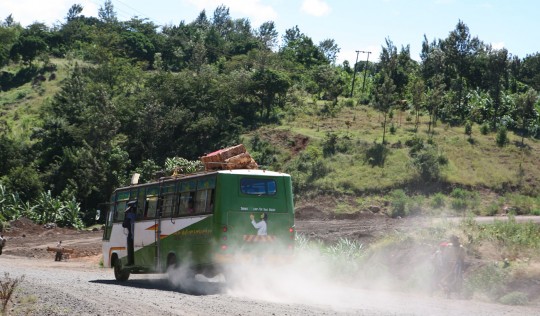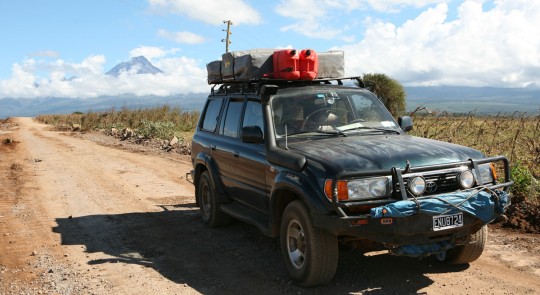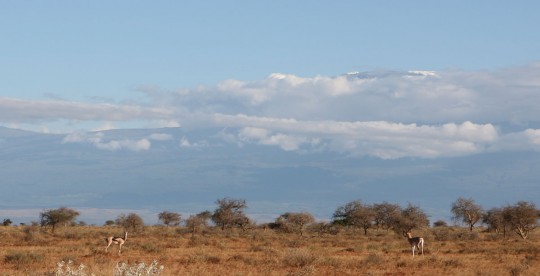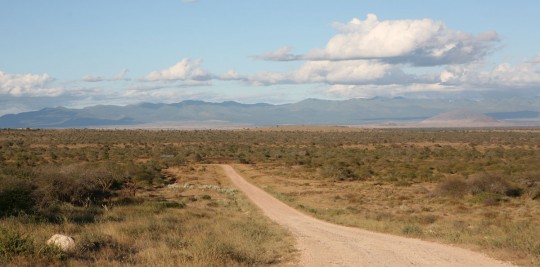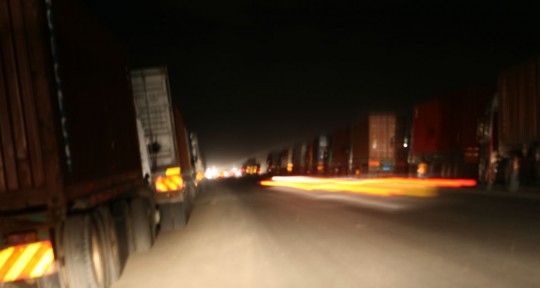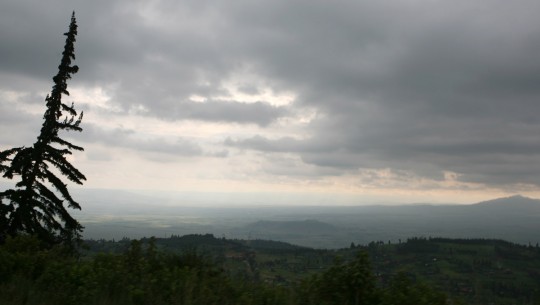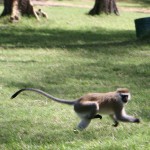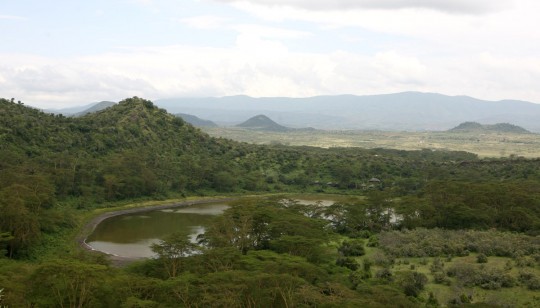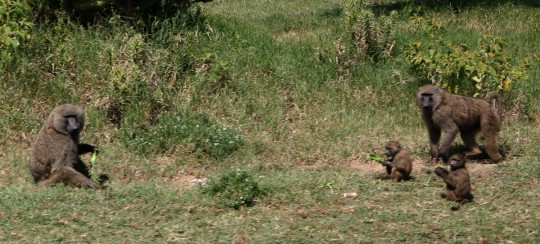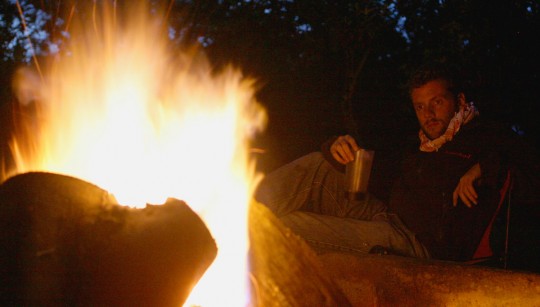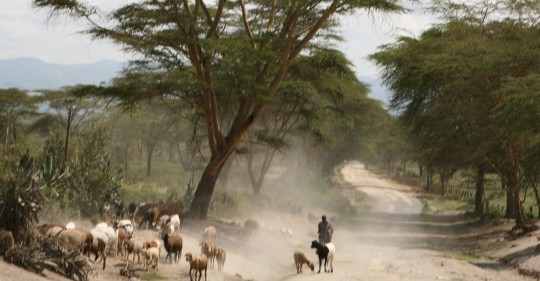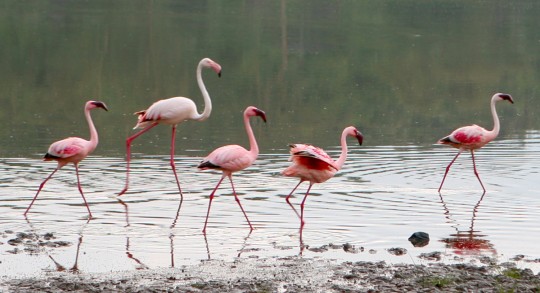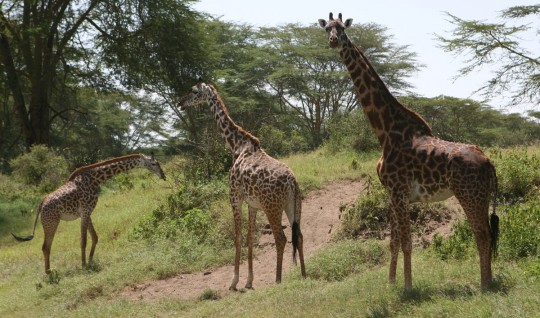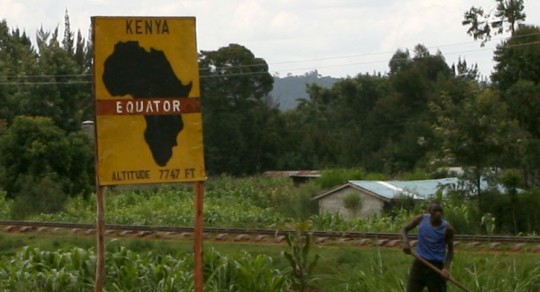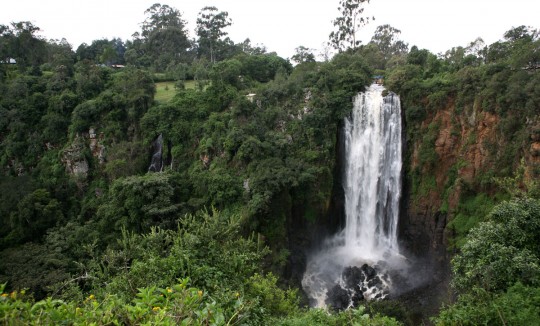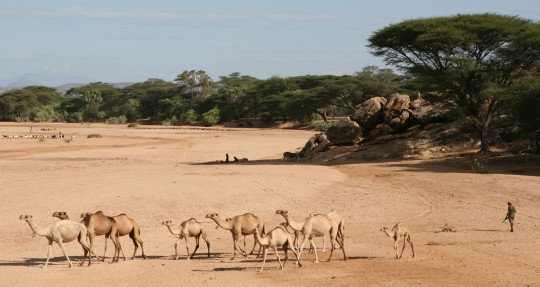
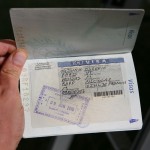
I came back in Nairobi on Sunday, and went straight back to the Upper Hill camping where I spent time previously. On Monday morning, waiting for the DHL guy, I changed my oil with expensive synthetic fluid I bought in South Africa.
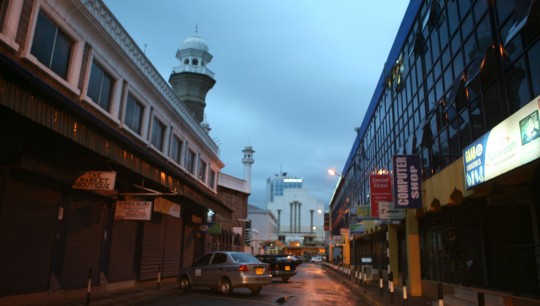
Also, I had to amputate the truck of its emergency brake, ate by rust and broken in pieces by the bad dirt roads. This stopped the terrible noise annoying me since Tanzania. I am ready to go, and have plenty of groceries I got the previous day. Finally, I go to the DHL depot to get my passport, and leave the city by 1 p.m.
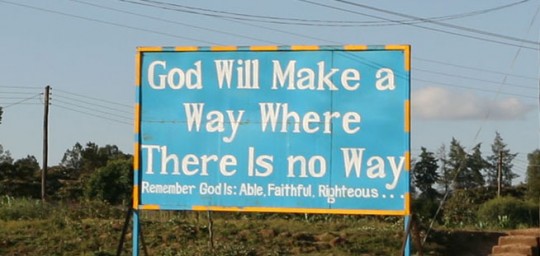
The first part of my travel brings me to Isiolo, 250 km (156 mi) from Nairobi. The hard part is to leave the city, and the traffic is hectic. I am sorry to say the following about Kenyans, but I don’t think that the king of bad drivers is Italian.
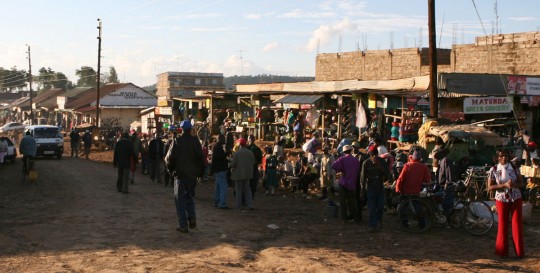
Isiolo is the last place with decent facilities. It marks the frontier with the wilderness of the northern part of the country, and has a Wild West feel. There, I go to the Jabal-Nur hotel, where I get a room for US$ 3.5.
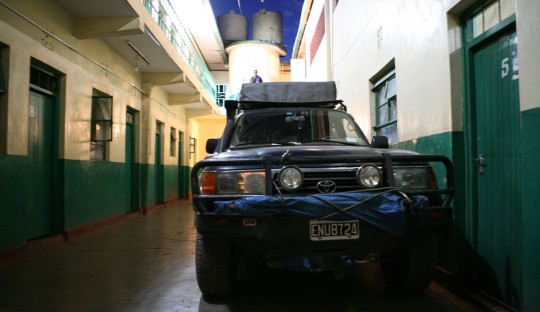
I spend the evening speaking with Kenyans and go to my room to take some rest. The following day I am up by 4:30 a.m., and getting ready for the next step. Marsabit is 8 hours north of here, and there is no town in between.
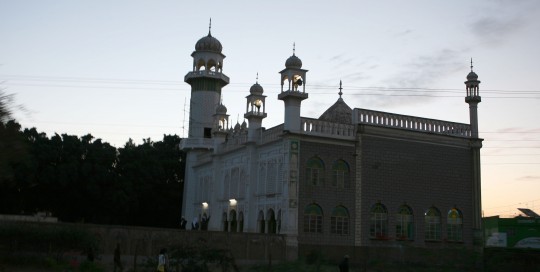
As usual before a trip of this kind, I go to the gas station, and fill my tank as well as my three jerry cans which guarantee me that I will not get stuck somewhere. There’s actually only one place you can get gas in the 500 km (313 mi) between Isiolo and Moyale, at the Ethiopian border. And sometimes pumping stations are dry, which can force you to wait for fuel delivery.
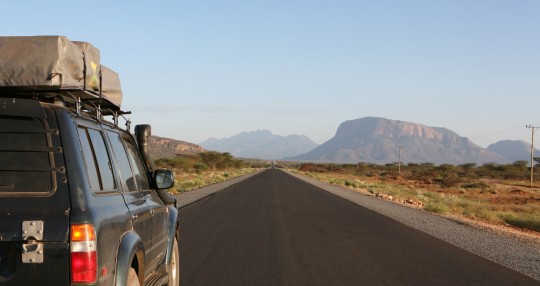
The last convoy, going straight to the Ethiopian border, left at midnight, and I didn’t feel like driving for 20 hours straight on dirt roads, which means I am leaving alone. I have the good surprise to see that some work has been done recently on the first 100 km (60 mi) of the track, and there is now a tar road.
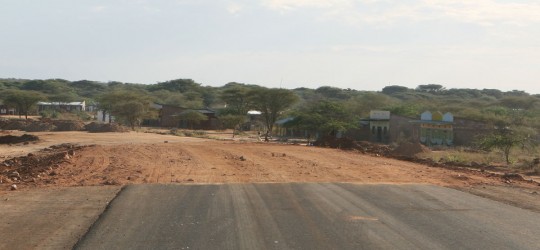
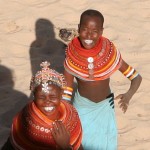
But soon, the dirt road begins. The road is made of corrugated dirt, rocks and sand, and shakes the guts out of me and my car. This is the worst drive since Bolivia. And like Bolivia, the trip is very rewarding as well. I see the nomads in the desert, proud camels, and birds follow my car for several minutes at a time. There’s not much traffic, just a truck every few hours coming the other way. Once in a while, there are some shady characters with machine guns making signs to stop, which I don’t.
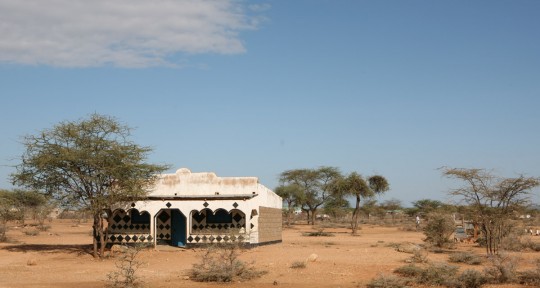
The dust is the worst. It goes everywhere in the truck, in my hairs and mouth. The dashboard and my luggage are covered by a thick layer.
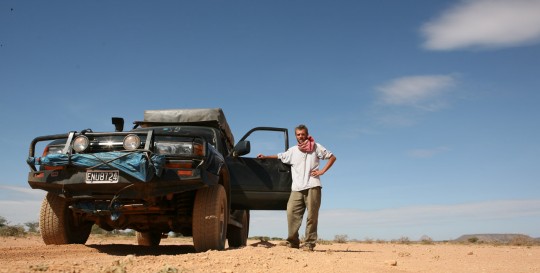
There are huge rocks everywhere, of the volcanic kind. Sometimes, tracks in the sand follow the road, and are easier on the truck than the gravel. But I have to be careful to not get lost…
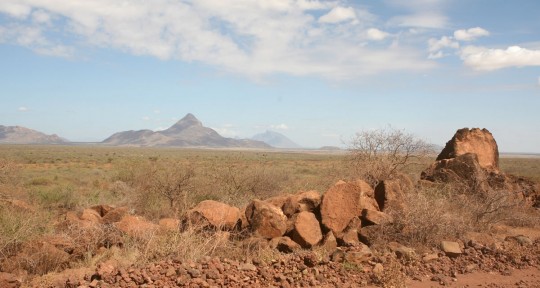
Around 2p.m., I arrive in Marsabit, and go to Henry’s rest camp where I spend the rest of the afternoon cooking, reading and having beers. Marsabit is located on a mountain in the middle of the desert. Because of this situation, I get a lot of wind during the night, and don’t have great night of sleep.
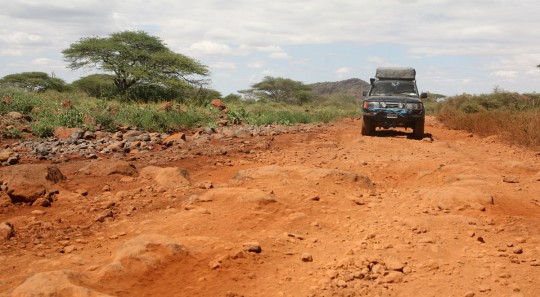
Regardless, I am back on the road the following day. The landscape is less interesting now, and the track is getting worst.
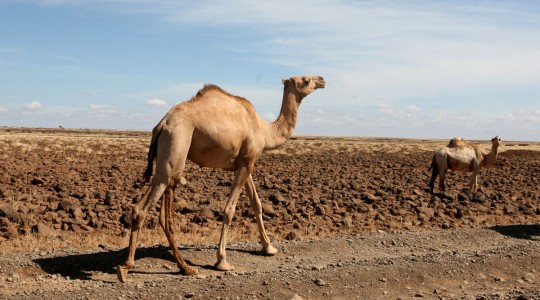
The heat is intense as well, and there is no shadowy place where I could take a break, so I keep driving and driving. Once in a while, I stop to inspect the truck, and make sure I don’t have a flat.
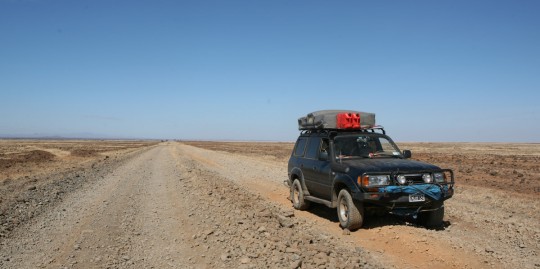
I have to fix the attachment of one of my battery which broke, and I also notice my radiator is leaking, but not enough to be an immediate problem. Some other pieces need to be fastened harder, and I am surprised the truck just doesn’t fall in pieces. I read the previous day in the guest book of the camp that previous travelers had scary experiences with this road, including wheels flying off the car, or frames breaking.
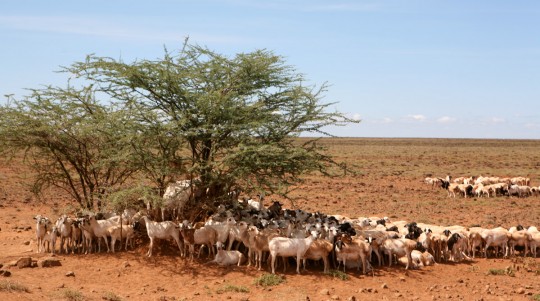
But I make it OK, and around 3 p.m., I am at the border. In Moyale, it doesn’t cost me more than the 30 US$ I had to pay in Paris for the visa. I don’t have one shilling left of Kenyan money, and was expecting to find an ATM close to the border.
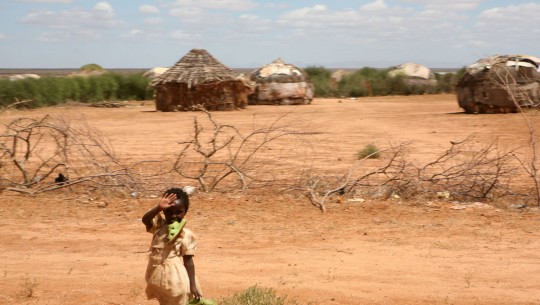
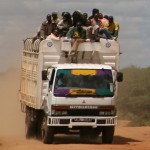
Unfortunately, I am told the closest ATM is more than 300 miles (480 km) from the border. And I don’t have enough gas to make it down there. As a result, I drive 220 km (138 mi) to Yabello, where I expect to find a bank where I can change some green bills.
It is night when I arrive there, and the bank is closed. Since I don’t have cash, I ask guards in a school if they can let me sleep there, and they are fine with the idea.
I just arrived in Ethiopia, but everything sounds like Mars to me. First of all, the country use the Julian solar calendar, made up of thirteen months. I believe we are in 2003 or something here, which make me younger by a few years. It also follows a different time system. That means for example that when I am told the bank open at 2 p.m., it actually means it opens at 8 a.m. whenever I cross a village, everybody screams “youyouyouyou” which seems charming at first, but is kind of tiresome at the end. it is also time to switch back to drive on the right side of the road.
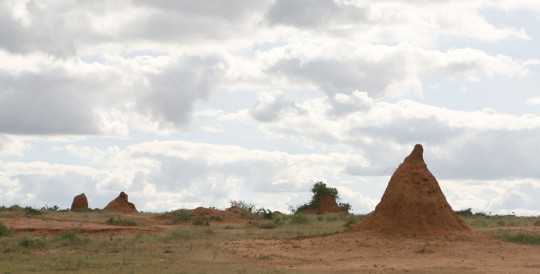
Later in the evening, I also have the visit of a professor of the school, and share a beer with him. I have the strangest experience. The discussion is really mysterious, and he keeps making mentions about who I really am. He also refuses to answer some questions I ask him. Eventually, I understand what he is thinking of. He believes I am some CIA spy. It may sound funny, but it I am actually kind of worry about possible outcomes of such suspicion. He mention that the American vice-president is in Kenya, which make me laugh at the idea that I could just work for him, and he would ask me to go with my U.S. truck across the border and camp in a school to try to get some secrets.
Eventually I go to bed, and take some rest after this long day.
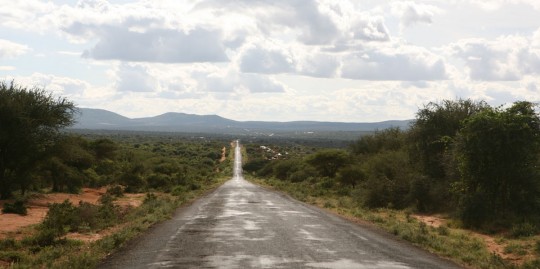
On Thursday, I go to the bank and change US$100. I figure I will get some more cash at the first ATM. I am now able to get some gas (US$ 4 a gallon) and leave. Unfortunately, after few hours of driving, and as I arrive at Awasa, famous for being the first town with ATM north of the border, I figure this precious piece of equipment is not working. So I have to go again through the lengthy wait at the bank to get some more cash. After that, I get some gas and continue north.
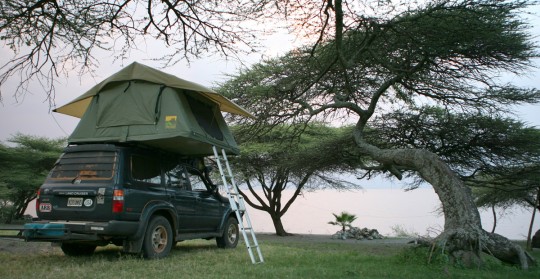
In the evening, I stop at Lake Langano, which is famous for its brown color, to spend the night (US$4). The next stop should be Addis Ababa. In a week from now, I should be in Djibouti.
